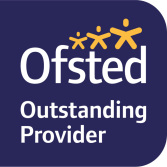
Behaviour Policy (including bullying)
To keep my house running smoothly and to ensure that each child respects and is respected in return I set out reasonable and appropriate limits to manage the behaviour of children in my care according to their age and stage of development. Firstly, I set a good example, being mindful of my tone of voice, language and actions.
By creating a happy, safe environment where I consistently manage and encourage positive behaviour the children in my care will be encouraged to develop social skills which help them be accepted and welcomed into society as they grow up.
Sometimes children display negative behaviour because they are hungry, tired or not feeling well or changes in their behaviour may be linked to safeguarding/child protection concerns. Negative behaviour is also a part of normal development and it’s how we respond to this behaviour that helps children to learn what is acceptable and what is not.
Over the years the children and I have drawn up some house rules together. I use my initiative in policing them because every child is different. I will be firm but fair, respecting them and listening to their reasoning. I regularly go over these house rules and update them where needed.
I follow the Statutory Framework for the Early Years Foundation Stage 2024 (supporting and understanding children’s behaviour)
House Rules
Lets all be kind to one another
We do our best to play nicely and share toys and games
Look after our toys and tell Ilana if any are broken
Sit on the sofa and run in the garden
Use nice words when speaking to each other
Eat at the table together and help each other by passing things when needed
Lets be safe both at home and when we are out
Tidy away the toys that we have been playing with
Love our animals and look after them nicely
Don’t swear, blame or accuse
Procedure
I keep up to date with behaviour management issues and relevant legislation by taking regular training and by reading relevant publications, such as Framework for the Early Years Foundation Stage, Surrey County Council website, PACEY’s website and publications and by reading relevant articles in general publications.
Upon joining our setting all parents/carers are given a copy of each of our policies and procedures with a covering note asking them to sign confirmation that they have a copy at home and that they agree to these policies and procedures. As and when updates are required, these are either emailed or hard copies given to the parents/carers.
I constantly monitor children’s behaviour and make notes where I think there may be an issue or concern. These notes are kept confidential in the child’s file, and I share concerns with parents/carers through regular discussions and emails.
I speak to the parent/carers about the best way to manage their children’s behaviour at my house and at their own homes so that we provide a consistent level of care. I will often praise the child to their parent when the child can hear to promote positive behaviour.
If I have concerns about a child’s behaviour which I cannot resolve with the parents/carers I may ask permission from the parent/carer to contact an outside professional such as a health visitor, behaviour specialist or the local early years team for confidential advice.
Wherever possible I try to meet parents’ requests for the care of their children according to their values and practices. Records of these requirements are agreed and kept attached to the child record forms. These records are revisited and updated during regular reviews with parents.
I encourage parents/carers to inform us of any changes in the child’s home life such as a new baby, separation, illness or bereavement as these could affect the child’s behaviour. All such information is kept confidential.
Sometimes children may need to get away and we have quiet spaces in the front room and in the quiet room where any of the children can take themselves to get away from lots of stimuli for a while. I also use these spaces to help children calm down and think about taking responsibility for their actions by talking to us about the choices they made and their possible consequences. I always give children time to express themselves and their feelings and will reassure them that they are valued. I support children in learning ways to deal with their feelings.
I encourage children to be responsible by looking out for each other, by tidying up, by feeding and looking after our pets and toys etc.
I encourage the children to express their feelings in words rather than actions, and through role-play, encouraging positive social behaviour and discouraging anti-social behaviour. Depending on their age and stage of development anti-social behaviour is discussed amongst the children, I try to get them to think of reasons why we don’t like the behaviour.
Whenever possible I ignore unwanted behaviour and praise the children when they are doing something good or nice.
I will not administer or threaten physical punishment, cause pain, discomfort, humiliate or hurt any child in my care.
I only physically intervene, and possibly restrain, a child to prevent an accident or injury to the child or another individual or animal (such as a child running into the road). The parent/carer is always informed of any such action on the same day or as soon as possible. A written account is kept and filed in the accident folder under the child’s divider with a parents signature.
Bullying is behaviour which deliberately makes another person feel uncomfortable, distressed or threatened, is usually repeated over time and can make those being bullied feel powerless to defend themselves. Bullying of any kind is unacceptable here. If bullying does occur, anyone can come and tell me and know that incidents will be dealt with promptly and effectively. If anyone knows that bullying is happening, I expect them to tell me.
I take allegations of bullying seriously and will immediately speak to all parties concerned about the incident in a sensitive way. I explain to everyone concerned why the incident is not acceptable and how it can hurt people. I will explain that it’s the behaviour and not the person that I don’t like. If appropriate I will ask the child to apologise for any unwanted behaviour.
I will advise parents/carers of any incident and actions taken when they come to pick the children up and I will make notes of the incident which will be kept in my accident folders which the parents will sign and have copies of.
If necessary, I will speak to the parent/carer together with the child to see if there is an underlying problem. If there is an issue that a child is worried about, we will work out a plan of action together.
If the bullying continues, more serious action may be needed. I may need to exclude the child from the activity or remove the child from the immediate environment.
I work with all of the children to give them assertiveness skills and improve their self-esteem and explain to everyone that it’s OK to say NO and walk away.
More information is available from www.kidscape.org.uk
Policy Written by: Ilana Hill Date: 17 January 2011Signature:
Last update and reviewed: 18 July 2024

